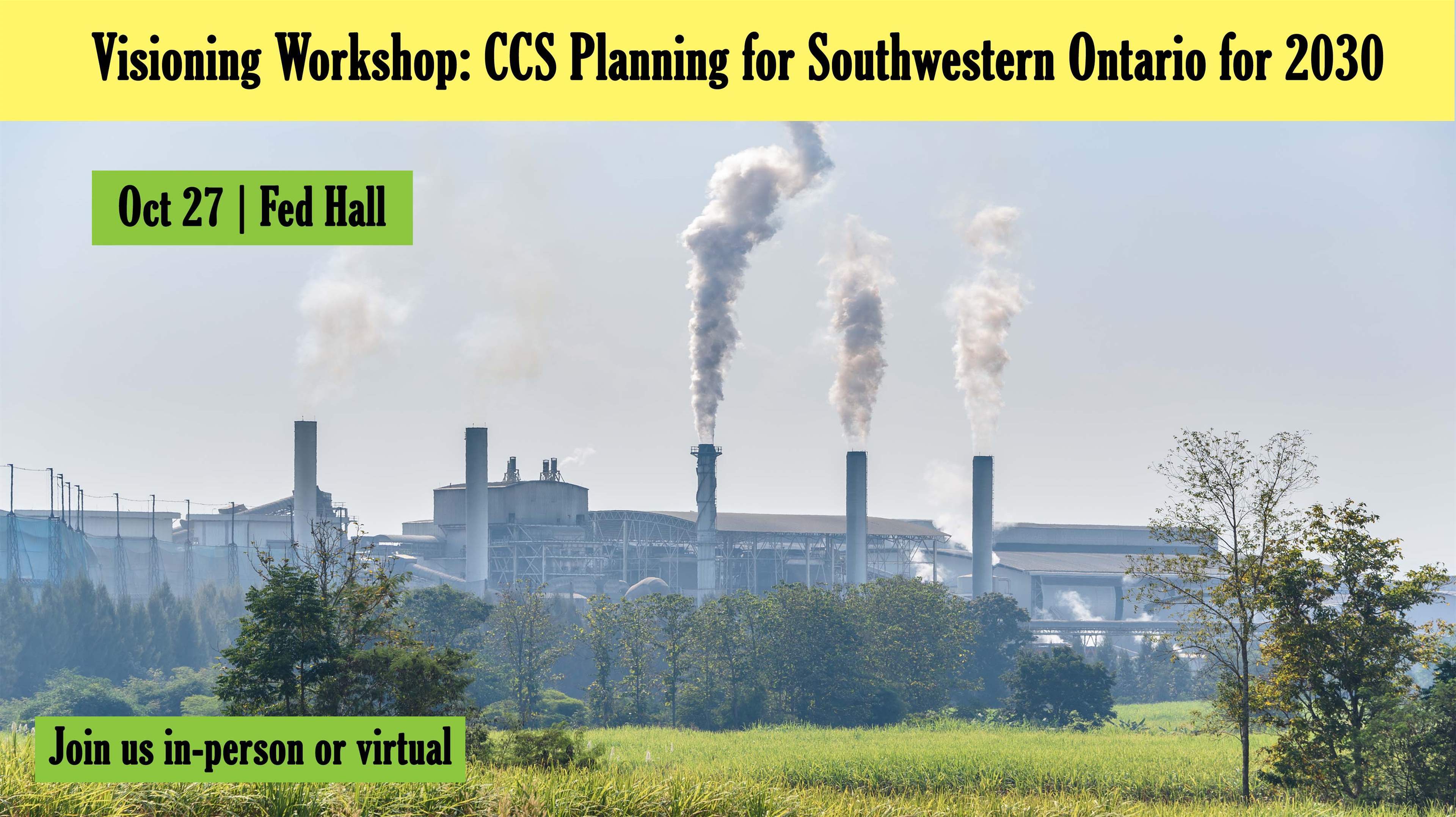Helping Ontario’s Heavy Industry Transport and Store CO2 by 2030

| Download Full Presentation |
Helping Ontario’s Heavy Industry Transport and Store CO2 by 2030
Canada has committed to a massive GHG emissions reduction by 2030 (i.e., CO2 emissions abatement). Ontario heavy industry (steel, cement, chemicals, oil refining, automotive…) will be transitioning to low-CO2 technology over the next 20-30 years, but to meet emissions goals identified by the Federal Government for 2030, action must be taken now. As C-taxes increase to $170/tonne by 2030, and as the USA considers carbon border tariff adjustments, actions that can be economically achieved to reduce emissions will help Ontario’s heavy industry remain sustainable.
The figure shows the principal SW Ontario CO2 emitters for 2019, estimated by Environment Canada. These plants are the industrial backbone of Ontario without which its economy would be unsustainable. Carbon capture and storage (CCS) in the sedimentary rocks of southwest Ontario is an important option requiring immediate assessment before infrastructure on the ground can be located. With the exception of depleted oil and gas reservoirs, the most promising reservoirs for CO2 sequestration are poorly understood. These deep saline aquifers only now have intrinsic value because of the need for CCS.
The recent Global CCS Institute’s report for the Government of Alberta identified five “barriers” to CCS investment. Four of the five are policy responses, e.g., a bankable value of CO2 emissions and investment in transportation and storage networks. However, one is overwhelmingly a technical issue that has been the principal concern of the University of Waterloo and Geofirma Engineering of Ottawa during 2021, i.e., Supporting detailed appraisal of prospective storage resources and adoption of the most appropriate capture technologies.
In pursuit of this technical objective, the Waterloo Institute for Sustainable Energy – WISE – of the University of Waterloo – is hosting a Visioning Workshop on the issues related to the capture (i.e., processing), transportation, and subsurface storage of CO2 in southwestern Ontario on 27 October 2021, starting at 8:30 AM (Registration).

Page Options


